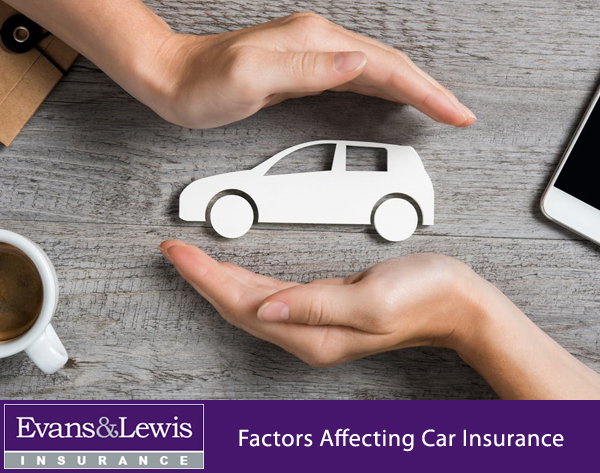Variables and factors that affect car insurance prices in the UK

One expense you’ll need to budget for in your life is car insurance. You must make sure that you’re always protected in case you run into an unfortunate situation and have an accident.
The reality is that car insurance prices have been gradually rising since 2021 in the UK. The reason is due to inflation and the rising cost of car repairs and energy. Customers end up paying more since insurers are covering the costs by raising premiums. Given this, you may be wondering how much is car insurance monthly so you can budget appropriately. Here we’ll dive deeper into the expected costs and what factors impact the cost of car insurance.
Factors that Influence the Cost of Car Insurance
There are several factors that can influence the cost of car insurance in the UK. Here we will take a closer look at what these are and offer some tips for reducing costs.
Policy Type
One factor that can influence the cost of car insurance is the policy type. The average cost of third party only (TPO) insurance is £599. The cheapest type of car insurance was third party, fire & theft (TPFT), which cost £449 annually. Ideally, you should choose a more comprehensive policy that offers you greater protection at a similar price. Traders often ask what does trade plates cover can can I get these when I work on a part time basis.
Your Age
Another factor to be cognisant of when it comes to buying car insurance is your age. On average, younger drivers will tend to pay more for car insurance. This is because they are more risky and more likely to experience accidents or incidents. It’s all about assessing risk to calculate premiums. The ages that will usually tend to pay more for car insurance are those that fall into the range of 17 to 24. Comprehensive car insurance costs a median of £1,021 for younger drivers. Even going with third-party options may not save you much money in the long run.
Your Job or Occupation
Insurers will also take into account your job or occupation when selling you car insurance. When you take out car insurance you have to share with the insurer what it is you do for work and your employment status. Your premiums can fluctuate based on this information. The cheapest rates tend to go to those who are retired or project managers and the more expensive premiums will be for a support worker or a manager. It’s important that you’re always honest when sharing with insurers what it is you do. If you fail to disclose the proper information it can invalidate your policy.
Where You Live
Another factor that can impact how much you’ll pay for car insurance is your location. It is a good indicator of the crime rate as to where you park your car and the risk of theft. Living in a lively and busy area such as downtown London can increase your chances of your car being stolen or damaged. It may also force you to have to park your car outside instead of in a secure garage. On average, car insurance in Greater London costs around £649 a year compared to Wales which is around £368. Car insurance premiums will vary depending on which region of the UK you live in. A frequently asked question I how do I get a low cost traders insurance policy and who has low monthly insurance. Criminal convictions can also cause the cost to increase
Your Mileage
You also need to take into account your mileage when shopping around for car insurance. The reason is that typically the more you drive around the more likely it is that you could get into a car wreck. The more you drive the more likely it is that you’ll pay more for car insurance. If you drive less often it could help lower how much you’re paying a month for car insurance. For example, if you usually drive 6,000 miles you’ll pay around £447 for your premium, while if you drive 10,000 miles annually you can expect to pay around £501.
Additional Factors that Can Impact the Cost of Car Insurance

Additional Factors that Can Impact the Cost of Car Insurance
These are just some of the elements that will influence how much you’ll pay for car insurance in the UK. There are several other ones to take into account as you shop around for the best deal. For example:
- How long you’ve been driving are you
- You no-claims discount
- Driving history including accidents and driving offences
- Where you have to park your car overnight
- The make and model of your car
- The amount of voluntary excess you choose
Insurers will take into account all of these various factors when coming up with a number and calculating your premiums. It’s all about assessing the risk that you may pose for them. It’s best to shop around for car insurance since each insurer will calculate risk and premiums slightly differently. It’s wise to get a lot of different quotes at different prices before committing to a particular insurance company.
Reasons for the Rise in Car Insurance Costs
The truth is that the cost of car insurance in the UK has gone up over the years. It’s important to know the reasons for these rising prices so you can be prepared to pay your share when it’s time to secure car insurance. According to Consumer Intelligence, the average price paid for motor insurance increased by 34% in 2024 compared to the previous year. The primary reasons for this are the rising price in repair costs and more vehicle thefts reported. You’ll want to keep your insurer informed if your situation changes as well. For example, maybe you choose to move or you find that you have to drive more annually for work. These factors can cause your insurance premiums to go up. You should also let them know if you switch jobs as your insurance may go up or down depending on what your new occupation is.
The Future Costs of Car Insurance
You may be wondering if car insurance prices will go up in the future. It all depends if inflation continues to rise. In this case, so will your car insurance and premiums. It will be influenced largely on how the economy is doing. However, with the rise in expenses, it may also be the case that wages and government aid schemes increase. Therefore, it will make it easier for you to cover the cost of car insurance. How much do cheap trade plates cost, and do people search for motortrade uk.
What if I Have an Accident
The reality is that accidents happen and you may find yourself in a car crash some day in the future. In this case, you may be wondering if your car insurance will go up in price after a car accident. If you get into a car accident and you are found to be at fault then you can expect your premiums to go up at renewal time. The reason is that you’ll lose some of the money that you used to save with a no-claims discount. You’ll also be viewed by insurance companies as an increased risk and therefore they will raise your premiums.
Unfortunately, you may even find that your insurance rates increase if you get into an accident and it wasn’t your fault and you don’t submit a claim. This is because you are viewed as an increased risk of having a future accident. Everything is based on statistical risk. Ideally, if you have an accident that’s not your fault and your insurance goes up it may be time to shop around for a better deal. You may be able to secure insurance at a lower cost by switching insurance companies.
Tips on How to Get Cheaper Car Insurance
It’s wise to always be finding ways to save money and cut costs. Insurance isn’t cheap but you also need to make sure that you’re covered properly. There are some tips you can apply that will help you get cheaper car insurance overall. It’s always a good idea to shop around and compare costs and quotes for all levels of cover. You could pay less with more coverage by getting a comprehensive car insurance policy which is really helpful if you live in a large city like London.
You may also want to think about getting a black box policy. Telematics insurance can assist young or inexperienced drivers get less expensive quotes by tracking their driving and proving they’re a lower risk on the road. Another tip on how to get cheaper car insurance is to ensure that you always report accurate mileage that you’re driving annually. You want to make sure that you get it right and never lie about how much you’re driving. You can also look into taking advantage of no-claims discounts. The longer you are driving out on the road without an accident or incident the better. It’s a great way to save yourself some money on your car insurance. In some cases, a family member or friend may drive your car. You can let the insurance company know this and your rates may go down if they are an experienced driver without a record of any accidents or incidents.
Should I Pay for Car Insurance Monthly or Annually?
You may also be wondering if it’s cheaper to pay for car insurance monthly or annually. You should know that it’s always cheaper to pay off your car insurance in a lump sum annually. If you decide to pay monthly you’ll need to cover interest costs. The higher the cost of your insurance.



